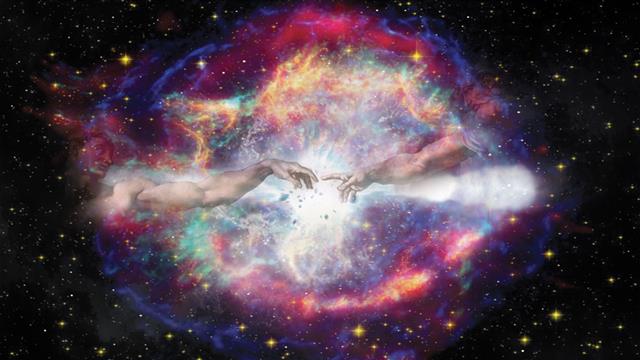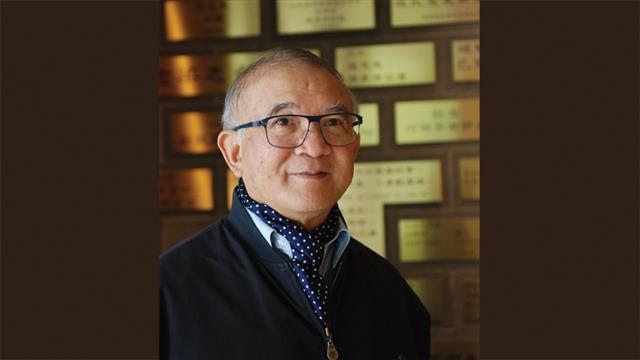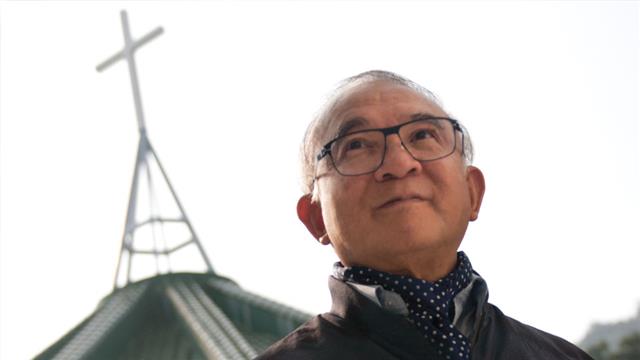Pope Francis, in an address to the Pontifical Academy of Sciences in the Vatican last October, was quoted as saying that ‘the Big Bang, which is today posited as the origin of the world, does not contradict the divine act of creation; rather, it requires it' and that ‘evolution of nature is not inconsistent with the notion of creation because evolution pre-supposes the creation of beings which evolve.' The Pope's comments appeared to many who cared about such things as ushering in a new dawn upon the supposed chasm between science and religion. Is the Church going to relent, given the progressiveness and enlightenment that mark Francis's pontificate? Here, CUHK Newsletter talks to the Reverend Prof. Louis Ha, director of the University's Centre for Catholic Studies, on the subject and related matters.
Father Ha begins by emphasizing that the Catholic Church has always been aware of her differences with other views about how the Universe came about, but has never ceased her efforts to deepen her understanding of such differences. The Church's view is that the world, and the primogenitors of the human race, are both created at the will of God as it is recorded in the Bible, and this view exists within the paradigm of religion, which requires the belief of those who embrace Christianity. On the other hand, scientific theories such as evolutionism and Big Bang belong to the realm of science, where proof reigns supreme. While the Church acknowledges that belief is derived from inspiration and revelation, and therefore does not need to be supported by scientific evidence and rational proof, she holds the view that faith and reason can work together, and must work together. The Pontifical Academy of Sciences referred to above, which could trace its origin to the early 17th century, would be a good example of the Church's efforts in this direction.
Father Ha then continues to expatiate on the interpretation of the Bible, the sacred scriptures of Christianity. One has to understand that the narration of happenings and events in the Bible does not begin at the time when such matters actually began, but dates only from the time that such narration commenced. It thus follows that biblical records often have to be studied in the appropriate temporal, spatial, historical and social contexts for a more comprehensive understanding of the Divine Will. Furthermore, the books of the Bible had existed in oral traditions only for a very long time, which thus necessitates due consideration of the background and other intervening factors involved in the transition from an oral heritage to the written text. There were significant breakthroughs in biblical scholarship and archaeology in the last two centuries, which have also helped to facilitate a better understanding of the book among scholars. Thus, in matters concerning biblical exegesis, the Catholic Church does not insist on following the texts literally alone, as there are often so many other factors that can throw light on their meaning.
On the subject of how the world and the living creatures that inhabit it came into being, Father Ha explains that there are many theories which attempt to provide an answer: some hold that the world was created by a godhead, while some believe in the existence of a demiurge, or a fashioner of the world but who is not the creator of the matters and lives that make up the world. There are yet others who hold that things came into being through an intelligent design. Father Ha observes that the issues involved in the creation are too complicated and that man still has not been able to obtain a fully satisfactory explanation in science—evolution may explain a lot, but there is still the question of the origin of the matters from which evolution proceeds, if creation is not to be believed.
Father Ha then moves on to discuss Christian ethics in the context of the modern world. The Church emphasizes the importance of life above all else, and that everything concerning human life is therefore of inviolable significance and value. This is why the Church takes a stance against the death penalty and abortion, and views processes such as contraception and in vitro fertilization as unreasonable and unnatural interventions. The Church also regards procreation as a key factor in marriage and, in that light, cannot categorically accept same-sex unions, which are now being granted legal status in a number of countries. While these teachings would appear to go against the grain of modern society, the Church regards such precepts as of essential importance and therefore not amenable to concessions, because they have all stemmed from a respect for the value of human life.
Father Ha concludes his most enlightening session with us by looking forward into the pontificate of Pope Francis. He recognizes the newly elected pontiff as a man of progress and change who takes a practical approach to things. While he is burdened with traditions and institutions built up over the centuries, and a curia that, despite the reforming efforts of the last few popes, still functions with the vestiges of a medieval court, he is anticipated to do all he can, and where he can, as servus servorum Dei, to meet the needs of the modern Church, in both the spiritual and the material contexts.
The origin of the universe as we know it today, and the ancestry of the human race, have been fascinating subjects for philosophers and the man in the street alike since the beginning of civilization. From the days of Gilgamesh and Timaeus, the human mind has never been known to have professed a homogeneous view on these two subjects. While these questions will continue to work the human mind, Father Ha has given us a context in which they can be contemplated.




